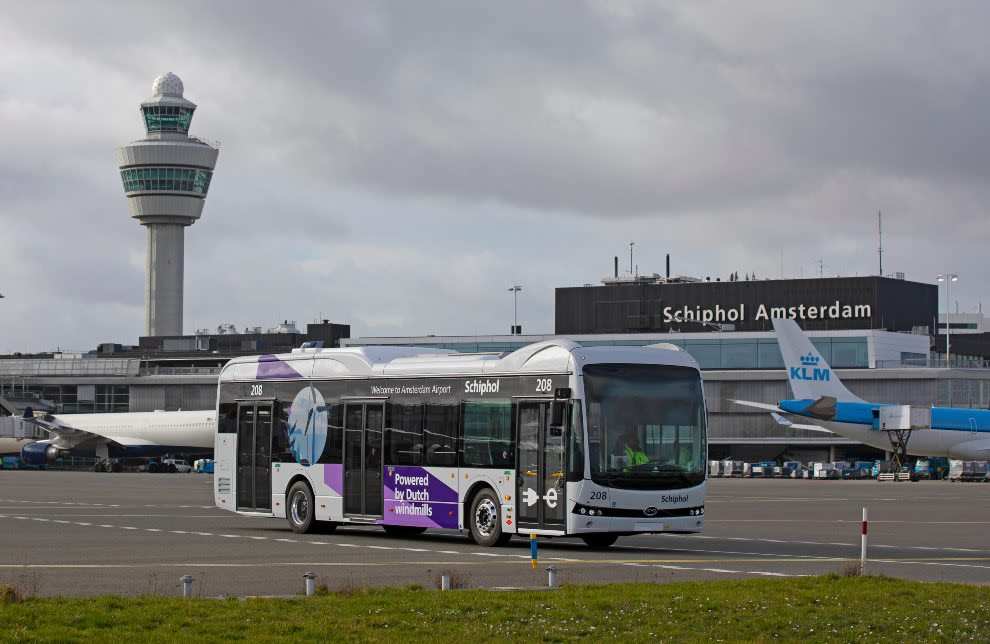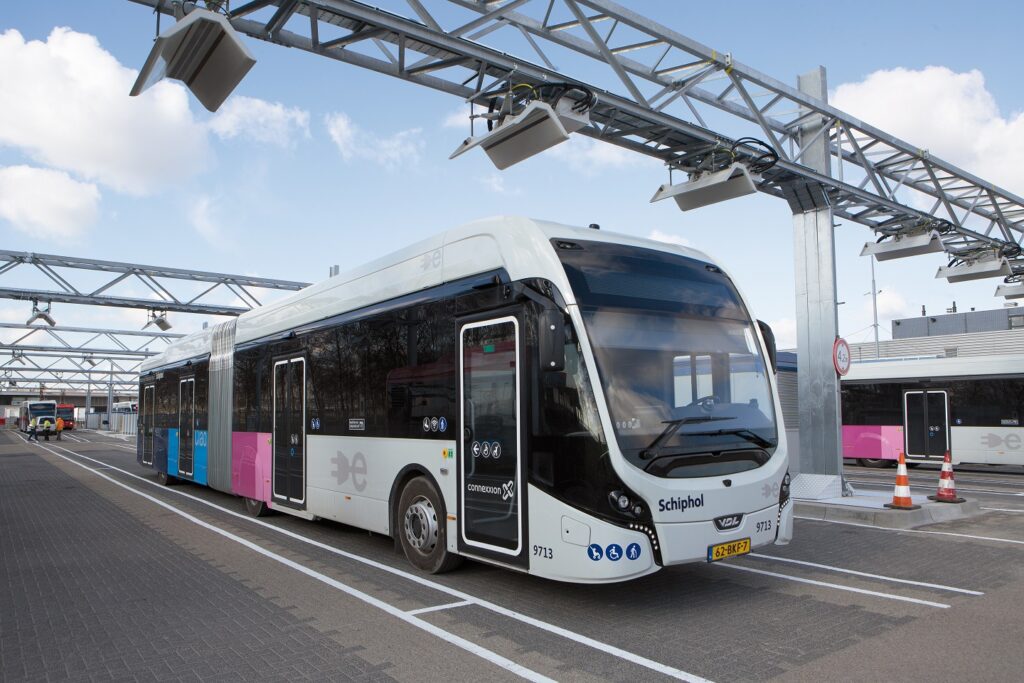Schiphol Airport Electric Bus for KLM Crew Debuts
Schiphol Airport begins the next phase of its self-driving shuttle bus trial, focusing on transporting KLM flight crews in a bustling airport environment.

Photo Source: www.schiphol.nl
Amsterdam’s Schiphol Airport has launched the second phase of its electric self-driving bus initiative. This phase focuses on shuttling KLM flight crews. The autonomous shuttles are tested in the complex apron area, which is busy with aircraft and ground operations.
The first phase tested technical features and ease of use. Now, KLM Cityhopper and KLM Ground Services crews use the bus on a pre-programmed route between Apron A and the terminal. The bus operates several times daily. It navigates using advanced sensors, cameras, GPS, and LIDAR technology, providing a 360-degree view and detecting objects up to 30 meters away.
KLM Cityhopper managing director Maarten Koopmans is enthusiastic about the innovation. He said it aligns with KLM’s goal for emission-free ground handling by 2030. “I think it’s great that our crew can test this innovative, self-driving bus. KLC has always set the trend in implementing the latest technologies, and this innovation also fits in perfectly with KLM’s aim to achieve emission-free ground handling by 2030,” Koopmans said.
Jan Zekveld, Head of Innovation Schiphol, emphasized the importance of punctuality and safety on this route. “It’s great that we’ve been able to follow up on the trial with the self-driving buses so soon. We’re curious about the insights we’ll gain at this location, particularly because punctuality and safety are crucial on this route. We’re also curious how airline crew members experience self-driving transport. This will help to build trust in the technology and potentially facilitate the future integration of other self-driving vehicles,” Zekveld said.
The trial will continue until the end of July. It aims to gather valuable data and feedback to enhance the technology further and pave the way for broader adoption of self-driving vehicles in airport operations.
In addition to shuttling flight crews, the self-driving buses are also expected to reduce emissions significantly. Traditional shuttle buses often run on diesel, contributing to airport pollution. Electric self-driving buses, on the other hand, are part of Schiphol’s broader initiative to improve sustainability and reduce carbon footprints.

These trials are instrumental in developing future airport transport systems. By integrating self-driving technology, airports can streamline operations, improve efficiency, and enhance safety. The data collected during these trials will be crucial for optimizing routes, ensuring the reliability of autonomous systems, and identifying potential challenges.
Passengers and airport staff have also expressed interest in the new technology. While the current phase focuses on KLM crews, future phases might expand the service to other airport staff and eventually to passengers. This gradual integration helps build trust and familiarity with autonomous technology.
The success of these trials could influence other airports globally. As Schiphol sets an example, other international hubs may adopt similar technologies, contributing to a global shift towards greener, more efficient airport operations.
Schiphol Airport’s second phase of self-driving bus trials marks a significant step towards innovative, sustainable, and efficient airport operations. The feedback from these trials will shape the future of autonomous transportation at airports, paving the way for widespread adoption and a more sustainable aviation industry.






